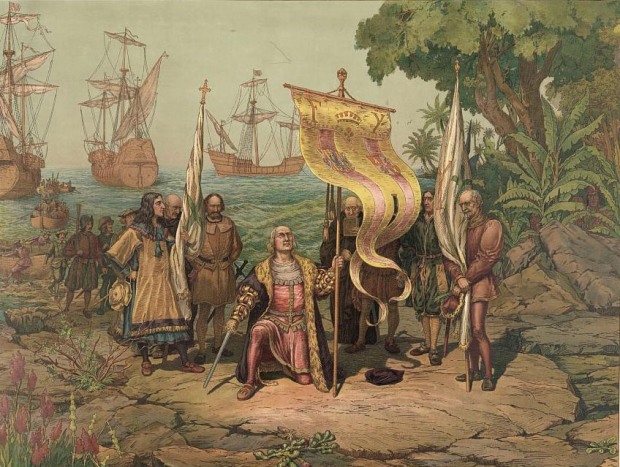 “Columbus’s voyages caused almost as much change in Europe as in the Americas… Perhaps the most far-reaching impact of Columbus’s findings was on European Christianity.
“Columbus’s voyages caused almost as much change in Europe as in the Americas… Perhaps the most far-reaching impact of Columbus’s findings was on European Christianity.
In 1492 all of Europe was in the grip of the Catholic Church. As Larousse puts it, before America, “Europe was virtually incapable of self-criticism.” After America, Europe’s religious uniformity was ruptured. For how were these new peoples to be explained? They were not mentioned in the Bible. [my note: in fact it took a hundred afer the discovery of the new world for Pope Paul III to publish a document (Sublimis Deus) that stated the Native Americans had souls.]
The Indians simply did not fit within orthodox Christianity’s explanation of the moral universe. Moreover, unlike the Muslims, who might be written off as “damned infidels,” Indians had not rejected Christianity, they had just never encountered it. Were they doomed to hell?
Even the animals of America posed a religious challenge. According to the Bible, at the dawn of creation all animals lived in the Garden of Eden. Later, two of each species entered Noah’s ark and ended up on Mt. Ararat. Since Eden and Mt. Ararat were both in the Middle East, where could these new American species have come from? Such questions shook orthodox Catholicism and contributed to the Protestant Reformation, which began in 1517.”
Catholic historian/sociologist James W. Loewen, in Lies My Teacher Told Me